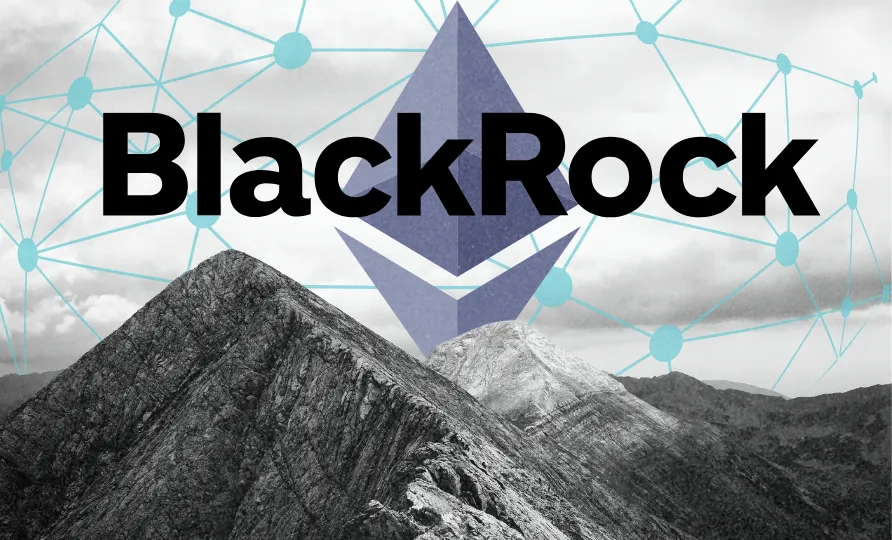BlackRock has shown interest in the most liquid crypto assets, mostly focusing on Bitcoin and Ethereum. It may be possible for BlackRock to build its own L2 network for tokenization based on its crypto strategy.
BlackRock may become the founder of a new L2 network that mimics currently available public chains. However, the investment giant will retain a higher level of control in the case of hacks and exploits.
BlackRock has used Ethereum’s chain, and has not spoken about other potential Layer1 solutions. At any moment, BlackRock could produce a private chain, but it would not be natively connected to other assets.
Indirectly, BlackRock also has ownership in Circle and access to USDC tokens, one of the most widely used stablecoins. TokenTerminal analysts believe BlackRock will be ready to launch its own chain, possibly a tokenless protocol similar to Base. The Base blockchain uses intuitive onboarding with a login-based wallet, aiming for an “onchain” experience similar to the usual user logins.
Bridges between Ethereum and L2 are the riskiest spots for BlackRock exploits
The biggest problem for BlackRock would be the regulations on using a blockchain. The creation of a L2 chain, compatible with Ethereum, would still require BlackRock to pay gas fees. L2 chains pay Ethereum a “blob fee” to preserve a batch of transactions and states as immutable. Moving between Ethereum and L2 also requires bridges, which are one of the riskiest spots for exploits.
Over time, multiple corporate entities have experimented with closed, proprietary chains. BlackRock aims to extend real-world asset (RWA) tokenization, to make use of a blockchain’s security and availability at all times.
BlackRock has already tapped Robert Mitchnick, bringing experience as an executive with Ripple, Inc. Formerly, the current Head of Digital Assets at BlackRock worked on an XRP valuation model. Mitchnick has often spoken of regulation as the biggest obstacle to the wider usage of distributed ledger technologies. Even the launch of the first Bitcoin ETF and the subsequent Ethereum ETF took years of research before the approval.
BUIDL token draws in big investments, few holders
So far, BlackRock has focused on BTC and ETH, relying on Coinbase Custody to supply its ETF. The only token created experimentally is BUIDL, which is still not widely distributed and shows limited on-chain activity.
The approach of BlackRock does not include tokenization for retail buyers. Instead, its BUIDL token has a very different ownership profile compared to native crypto assets. The tokenized money fund is held primarily by 18 investors, who injected more than $74.7M into the fund in the form of a liquidity redemption pool. All BUIDL holders can rely on specially provided liquidity in the form of USDC to cash out of the token.
Ordo Finance and the Gnosis Safe are the biggest holders of BUIDL. Most of the owners took up BUIDL in the first half of 2024, producing a supply of 513M tokens. The balance of BUIDL tokens is set based on a series of mints and burns, depending on buying or selling demand. In the first three months since its launch, BUIDL accrued more than 500M in assets under management, becoming a low-risk source of passive income.
BUIDL generated $2.1M in monthly dividends, paid out to all holders. Since March, the fund paid out a total of $7M in dividends to all participants. The creation of BUIDL uses the services of Securitize, who handle the tokenization side of financial products. The creation of BUIDL also helps crypto insider projects to find access to tradfi sources of liquidity. In July, the Arbitrum community allocated 11M ARB tokens to acquire BUIDL and also join to share in the monthly dividends.
BlackRock remains the most aggressive buyer of BTC and ETH for its investment products. As of August 2024, BlackRock is the biggest Bitcoin-based ETF, managing more than 37% of all inflows. BlackRock bought aggressively while Grayscale sold some of its holdings. A similar trend is happening with the Ethereum ETF, where BlackRock is more often the net buyer each day. On August 7, BlackRock achieved the biggest inflow of ETH, buying tokens valued at more than $108M.
Cryptopolitan reporting by Hristina Vasileva





